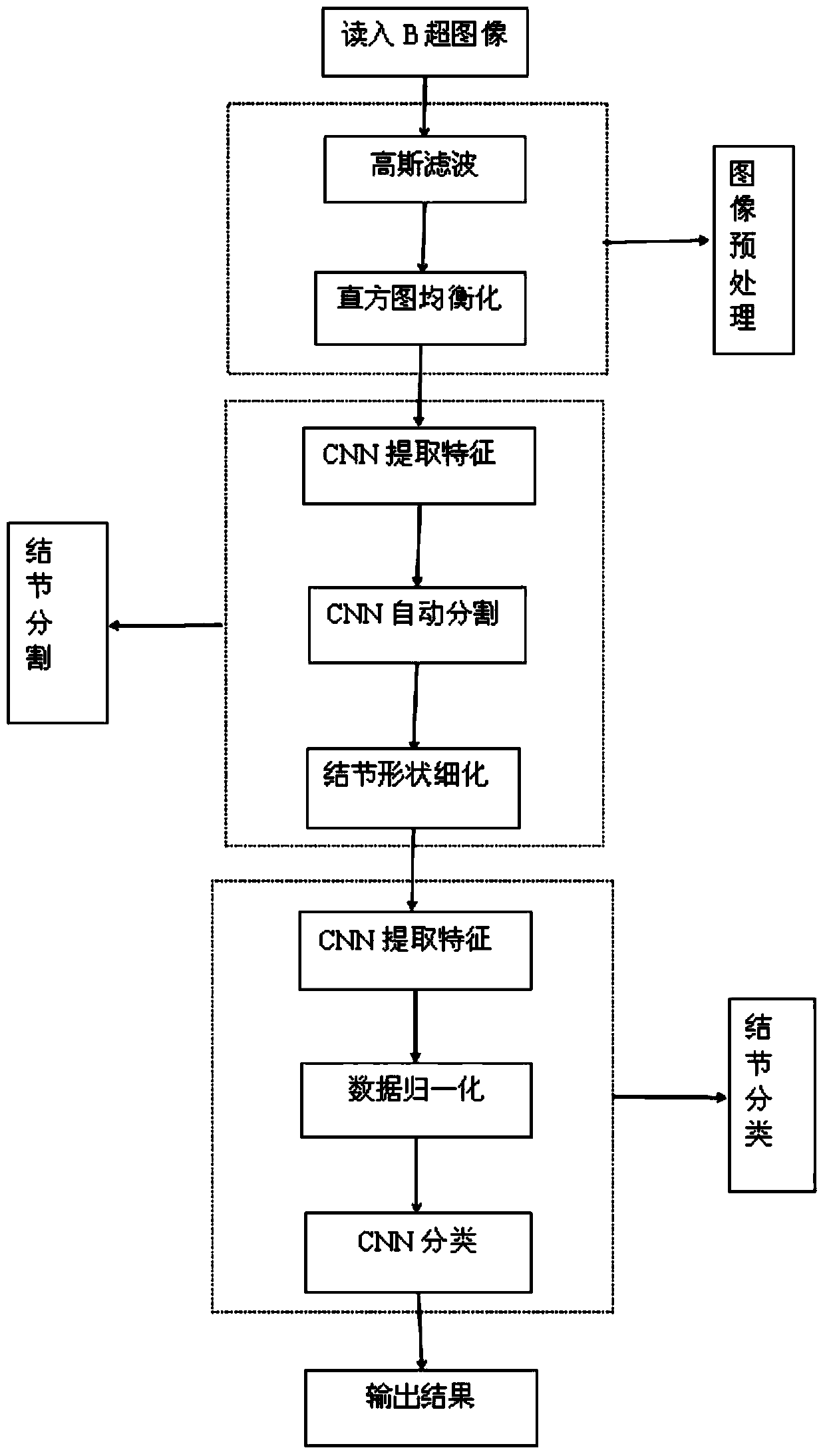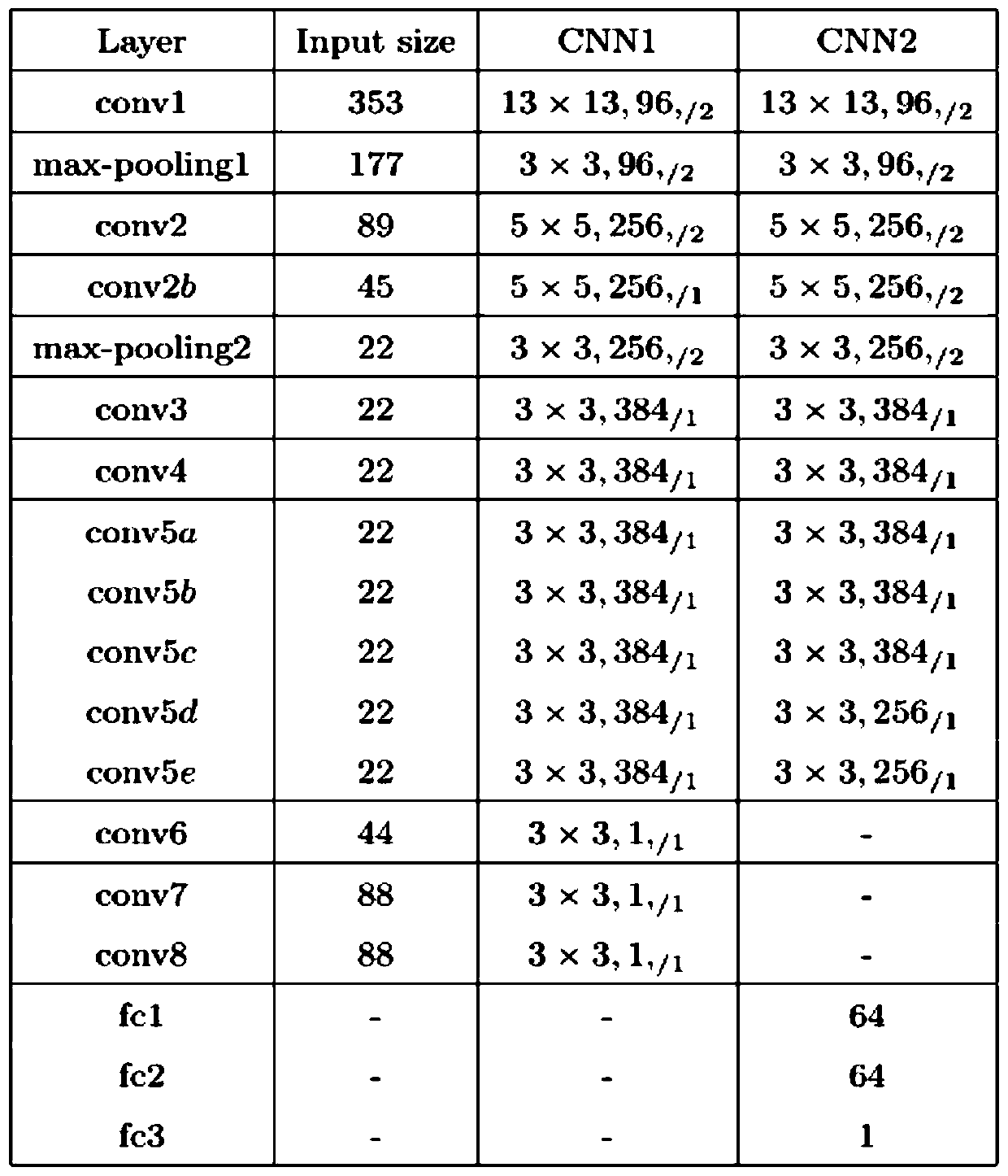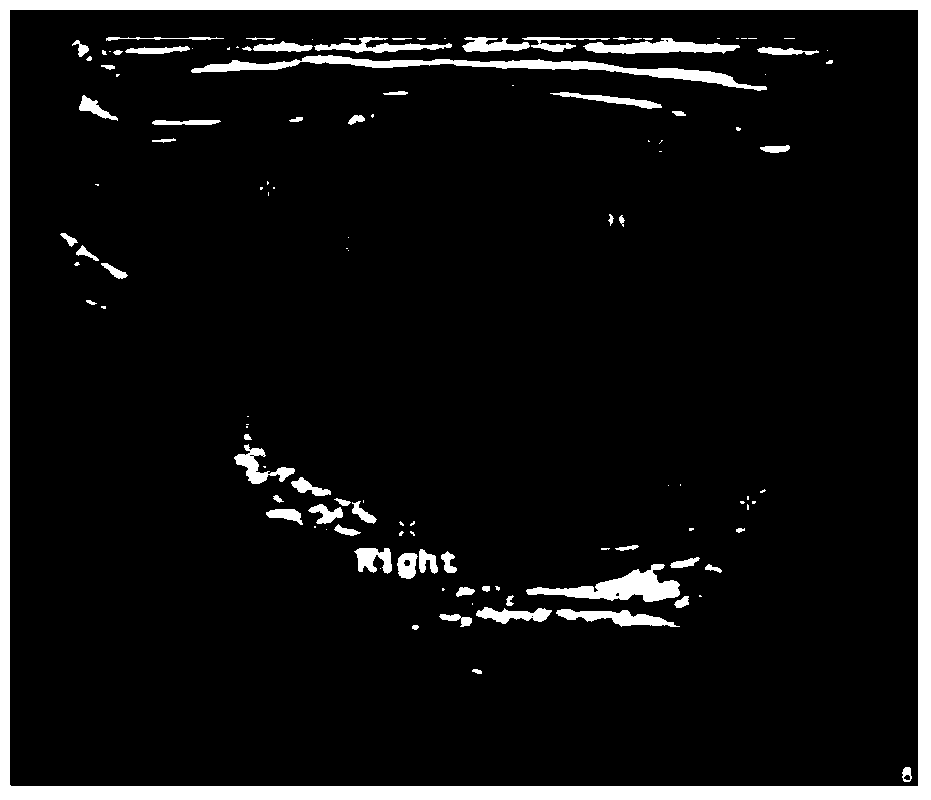Auxiliary diagnosis system for automatic identification of benign and malignant thyroid nodules based on deep convolutional neural network
A thyroid nodule and neural network technology, applied in medical automated diagnosis, computer-aided medical procedures, image analysis, etc., can solve problems such as the accuracy of auxiliary diagnosis and the influence of automation, and the poor quality of ultrasonic thyroid tumor images
- Summary
- Abstract
- Description
- Claims
- Application Information
AI Technical Summary
Problems solved by technology
Method used
Image
Examples
Embodiment Construction
[0068] Below in conjunction with accompanying drawing and specific embodiment the present invention is described in further detail:
[0069] The following examples can enable those skilled in the art to understand the present invention more comprehensively, but do not limit the present invention in any way.
[0070] A method for automatically identifying benign and malignant thyroid nodules based on deep convolutional neural networks, such as figure 1 shown, including the following steps:
[0071] 1. Read the B-ultrasound data of thyroid nodules;
[0072] 2. Preprocessing the thyroid nodule image;
[0073] 3. Select an image (including as many benign and malignant nodule images) and use a convolutional neural network (CNN) to automatically learn to segment the nodule part and the non-nodule part. The nodule part is the region of interest ( region of interest (ROI)), and refine the nodule shape;
[0074] 4. Divide the ROIs extracted in step 3 into p groups on average, use CNN...
PUM
 Login to View More
Login to View More Abstract
Description
Claims
Application Information
 Login to View More
Login to View More - R&D
- Intellectual Property
- Life Sciences
- Materials
- Tech Scout
- Unparalleled Data Quality
- Higher Quality Content
- 60% Fewer Hallucinations
Browse by: Latest US Patents, China's latest patents, Technical Efficacy Thesaurus, Application Domain, Technology Topic, Popular Technical Reports.
© 2025 PatSnap. All rights reserved.Legal|Privacy policy|Modern Slavery Act Transparency Statement|Sitemap|About US| Contact US: help@patsnap.com



